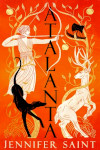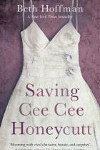Amanda Geard – The Moon Gate
Posted 13th November 2023
Category: Reviews Genres: 2020s, Domestic, Historical, Mystery, Romance
Comments Off on Amanda Geard – The Moon Gate

Amanda Geard did not know much abut her home country’s role in the war. Everything she knew was about Europe, not Australia. With this book, she has fixed that, and taught us all, too.
The Moon Gate follows a number of characters but three in particular, across three time periods. In the 1930s-40s, Grace has travelled from London to Tasmania to get away from the war and whilst neglected by her chaperone – her mother’s favourite, Rose – and her aunt, finds peace in both the cultural and literal landscape of her new home. In the 1970s, Willow and Ben are surprised to be named the beneficiaries of a trust that gives them a house n the west coast of Tasmania, and Ben wants to find out who their benefactor was. And in 2004, Libby is looking to find out more abut her father, Ben, who died in the Moorgate Tube Crash when he was visiting London on a mission to find out about her mother’s family.
The Moon Gate is a superb tale of grief and rebirth, focusing on aspects of history that are not well known.
Geard has written an incredibly immersive story that is worth every line of its 495 pages. Looking at three time periods, changing perspectives when it will add context and interest, and adding twist after twist after twist, The Moon Gate is an exemplary example of multi-narrative fiction that will sate the appetites of a great many readers of the genre. (I’d also like to note that the book has no filler sections – I really do mean it’s worth all those pages.)
It would be difficult not to say this is not a character-driven book – it absolutely is that – but the plot is thrilling nonetheless. And the theme work, whilst certainly running behind them, is not far off. You have Grace, a resident of Mayfair who is neglected by her mother in favour of the housekeeper’s daughter. Grace’s mother is a member of the British fascists and gives us the most memorable line of the book: ‘You are very difficult to love’. Spoiler alert but not really: there’s nothing wrong with Grace.
Then you have Ben in 1974-5. (His wife, Willow, isn’t seen so much here but her life spans two of the time periods, so she’s fully involved.) Ben is on a mostly one-man mission to find Willow’s birth parents because it makes sense to his that they are the people who bestowed upon Willow and Ben the house on the west coast. Ben’s mission is informed by his life in the system – having never known any parents at all, he is doubly keen to find Willow’s birth parents. And Libby, who has lost both her father and fiancé, trades a Tasmanian summer for a British winter, to find out if she can find out more about her father – her mother doesn’t know much and is quiet about what she does know.
Geard’s focus, in the ‘first’ timeline WW2’s impact on Tasmania, lends the book a particular uniqueness; she looks at both civilian and military history. Geard has included a fair amount of information about West Coast Tasmania mining, Huon pine (a type of tree that doesn’t rot easily), and the book is pretty steeped in its historical local community, which is no mean feat when you consider that so much of the goings on happen at the house. As to military history, with one of the characters being involved as a soldier in the eastern theatre of the war, there is information as to the lives of Tasmanian soldiers, as well as the worries of the regular civilians.
And if we are to speak of the wider country, which we should, then we must include Banjo Paterson: Geard has woven the famed Australian poet’s work into her novel, using it to drive parts of her character’s lives forward as Grace starts to write herself.
Paramount to the book’s themes is the look at grief. Most people in The Moon Gate have lost someone, and there is a particular case where the reader witnesses a death themselves. Many people in the novel have lost a parent and some have lost their partners. Geard’s inclusion of the Moorgate Tube Crash warrants a mention because it is an absolutely important event in London to know about but certainly for this Brit, Geard’s book is the first she’s heard about it; much like Kate Thompson’s employment of the Bethnal Green Tube Disaster of WW2 (for The Little Wartime Library), it’s a piece of history that shouldn’t be forgotten. And talking of grief, Geard’s look at loss of one’s partner is wonderfully done in the form of Libby’s remembrance of Krish, which impacts the choices she makes.
The Moon Gate may deal with difficult subjects but the reading experience itself is absolutely sublime – I’ve used that word for this book before and I likely will again. And as I have also said before, this book puts Geard’s debut The Midnight House to shame; how she will continue to advance from here I do not know but I have every belief that she will.
Publisher: Headline Review (Hachette)
Pages: 495
Type: Fiction
Age: Adult
ISBN: 978-1-472-28375-7
First Published: 14th July 2023
Date Reviewed: 18th August 2023
No Comments
Comments closed





















